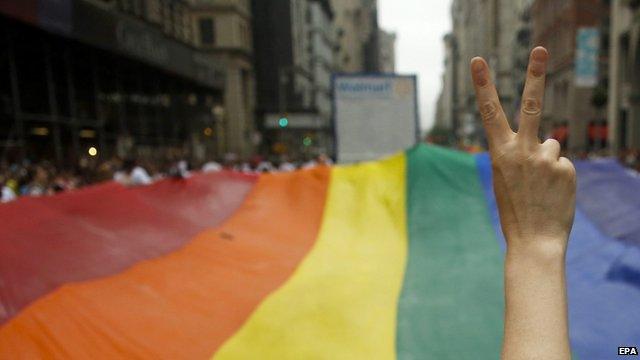The candour, humour and body swerve of a US president
- Published
- comments
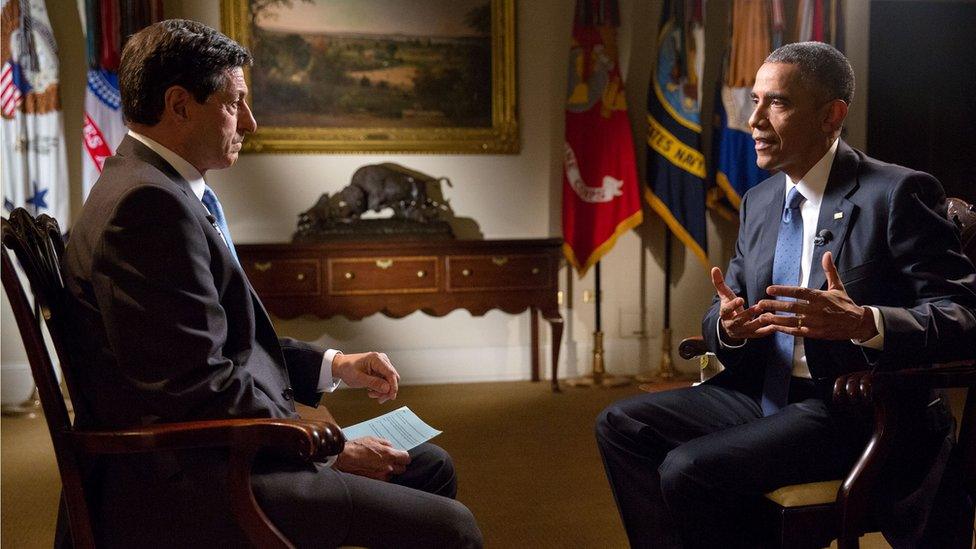
Photo by Amanda Lucidon/White House
The interview was due to start at 14:30. And as everyone knows, Barack Obama is legendary for being late. I mean, like, really late. Sometimes rudely.
Except today.
At 14:15, the White House press officer piped up - "One minute warning". The room fell totally silent - pin-drop hush.
There was the whirr of the air-conditioning unit and the crackle of expectation. It was like that pre-exam moment before the invigilator says "You can turn over your paper and start writing."
Then I realised my palms had become a little clammy and I was about to shake hands with the president. And then he was in the room.
When I do an interview I see it as my job to put the interviewee at ease. A little light-hearted banter, a soothing "just ignore all the lights and cameras and TV ephemera", and away we go.
Except when you're interviewing the leader of the free world. He quietly took charge of the pre-interview orchestration, and told a story of how he was in London just before going to law school.
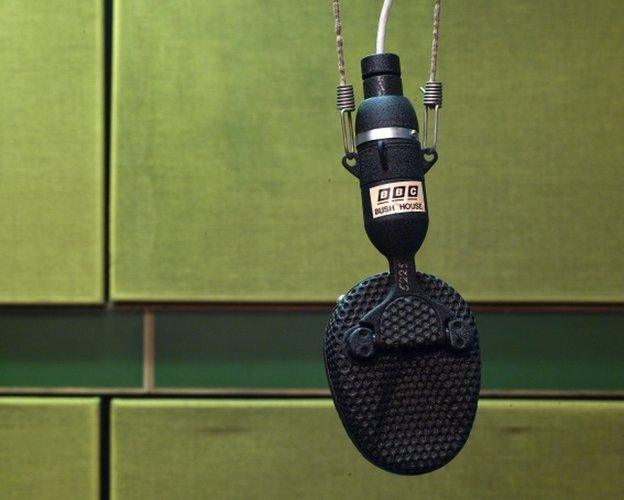
The future US president paid a visit to a BBC friend in the 1980s
This would have been the 1980s. And he had a friend who worked at the BBC whom he visited.
By the description it sounded like the old World Service premises, Bush House. He said there were these huge, old fashioned microphones and bakelite headphones. The young Obama sat in a chair and told me he half expected to be tapped on the shoulder only to find Winston Churchill standing beside him.
But now it was interview time. And I fluffed my opening question. Great. I've only been doing this for 30 years.
I stumbled and said "Let's start again". And without missing a beat, the president said, "that's good, I can wipe my eye - and we can all take a breath." Of course, he didn't have anything in his eye, but the tension had been defused.
The thing that struck me most from our chat was the extraordinary candour.
When I put it to him that he might leave the White House in 18 months with "unfinished business" on guns and race, he said it was the greatest frustration of his presidency that he hadn't been able to do more about gun crime.
Since 9/11 fewer than 100 Americans had died in terror attacks, he said, but tens of thousands had perished through gun crime. He also talked about America's continuing travails over race.
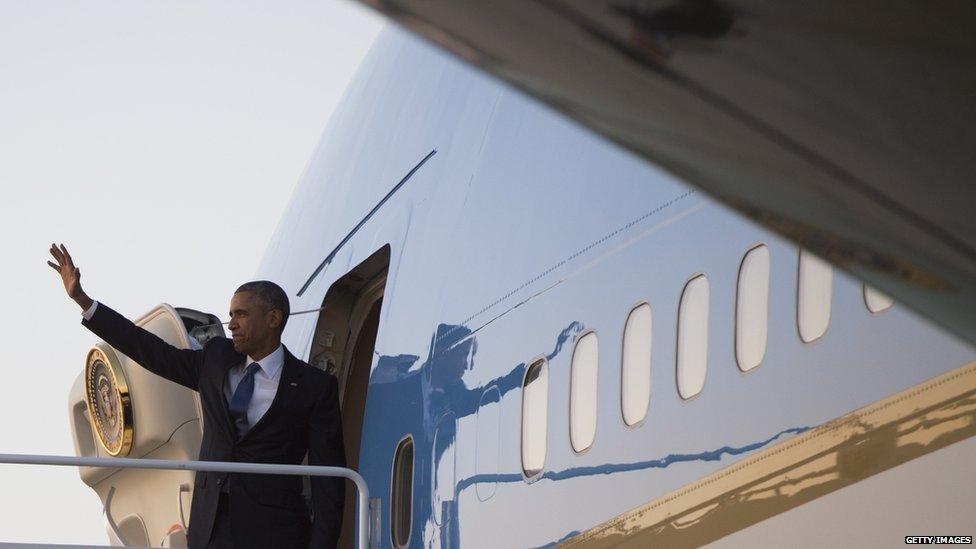
He said he would be a tough friend to Africa - and was pretty blunt about attitudes there towards homosexuality. "I am not a fan of discrimination and bullying of anybody on the basis of race, on the basis of religion, on the basis of sexual orientation or gender," he told me.
The only body swerve that he performed was when I asked him how many minds he had changed on the Iran nuclear deal after an intense sell aimed at Gulf allies and members of US Congress who remain implacably opposed. There was a momentary flicker across the president's face as if to say "You think you got me?" before his smile returned and he proceeded to talk about how Congress would come round.
But notably, he did not give a direct answer to that question, which leaves me with the impression that he has persuaded precisely zero.
Nine months ago, the president seemed like a spent force, after taking a beating in the midterm elections, during which members of his own party were reluctant to campaign on his record. But the man sat before me today was relaxed and confident, buoyed by a string of "wins" on healthcare, Cuba and Iran, after bitter and ongoing battles with his many critics.
He was funny too. Talking about the importance of the strategic relationship with the UK he said Britain had always been America's best partner.
Then he corrected himself - except for 1814, he said. I think there was some minor incident then when some British forces may have tried to burn down the White House.
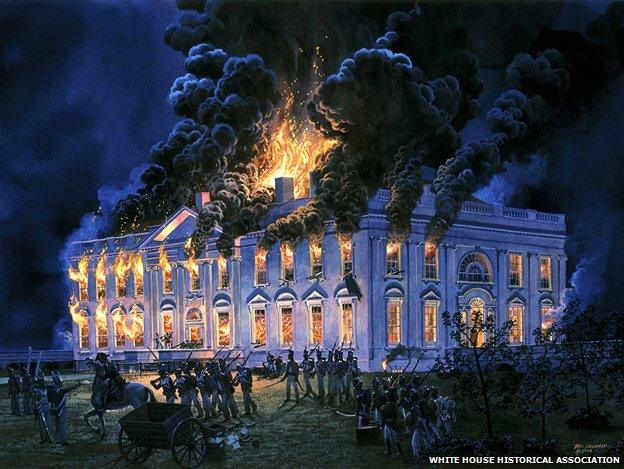
The Burning of Washington in 1814 by British troops, as depicted by Tom Freeman
And then the interview was over. "Fantastic," I said. The president said it was one of his favourite words from England. "So much better than awesome," he exclaimed to the crew, and then explained that he was trying to get his staff to use the word "fantastic" instead.
He invited me out to the Rose Garden to walk along the famous Colonnade. I was in the West Wing. Well literally of course I was, but it felt as though I was part of the Aaron Sorkin drama.
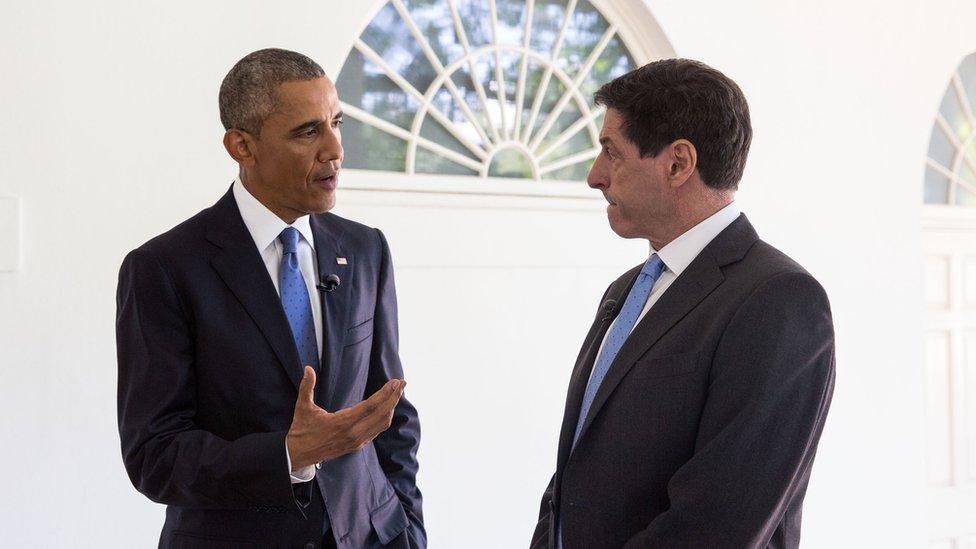
Photo by Amanda Lucidon/White House
"Jon, meet my chief of staff... and here's my general counsel, Warren Eggleston - it's his job to keep me out of jail."
We bump into this one and that one and then we're out in the Rose Garden, the president telling me about what Africa means to him personally. We're about to leave and he summons the crew - my producers and camera operators. He shakes them all by the hand and then lines us up so the White House photographer can take a team photo with him at the centre.
So what was it like as an experience? Well some might say fantastic, others might say awesome. But what it wasn't was just another day at the office.
- Published24 July 2015
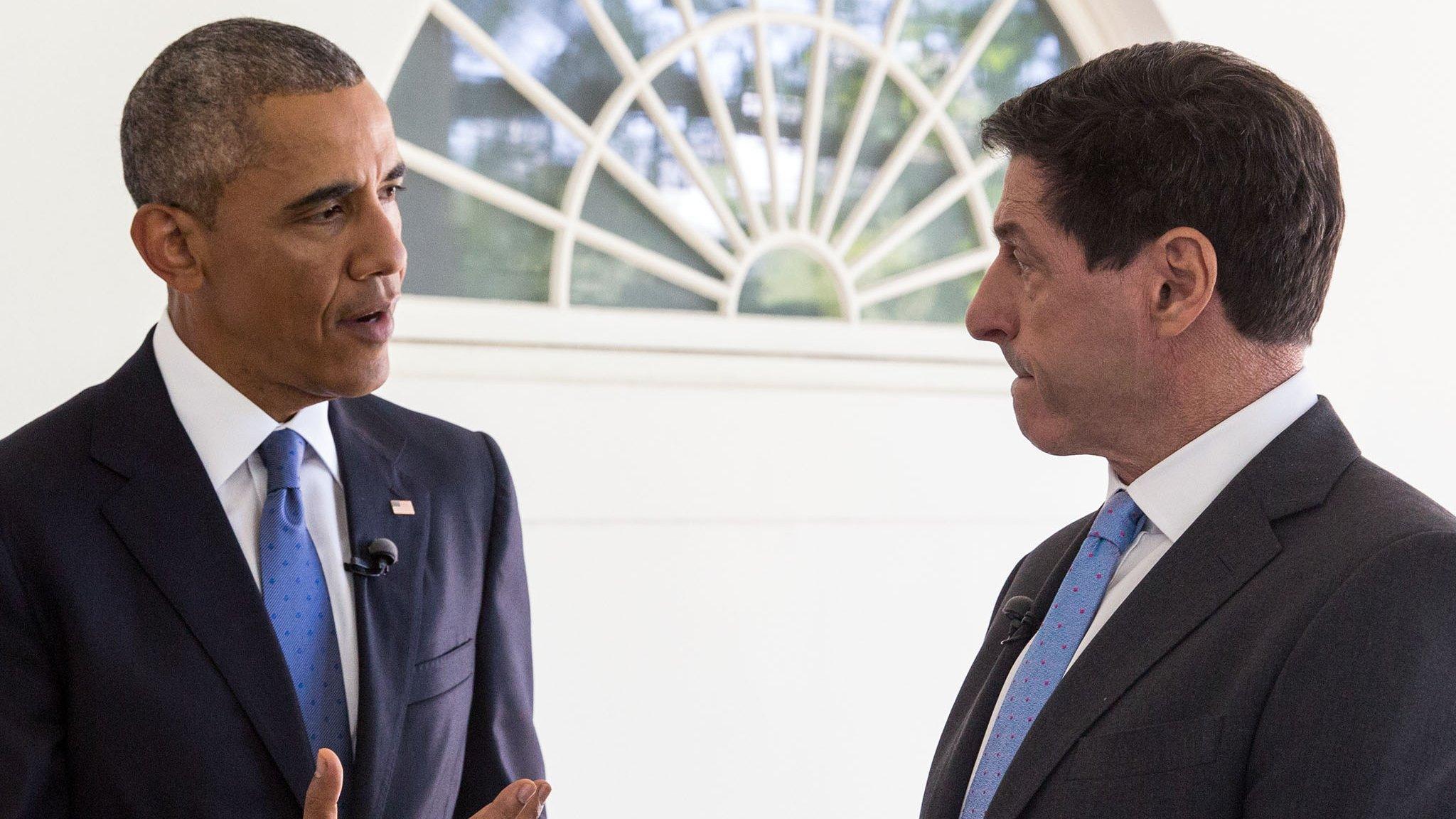
- Published24 July 2015
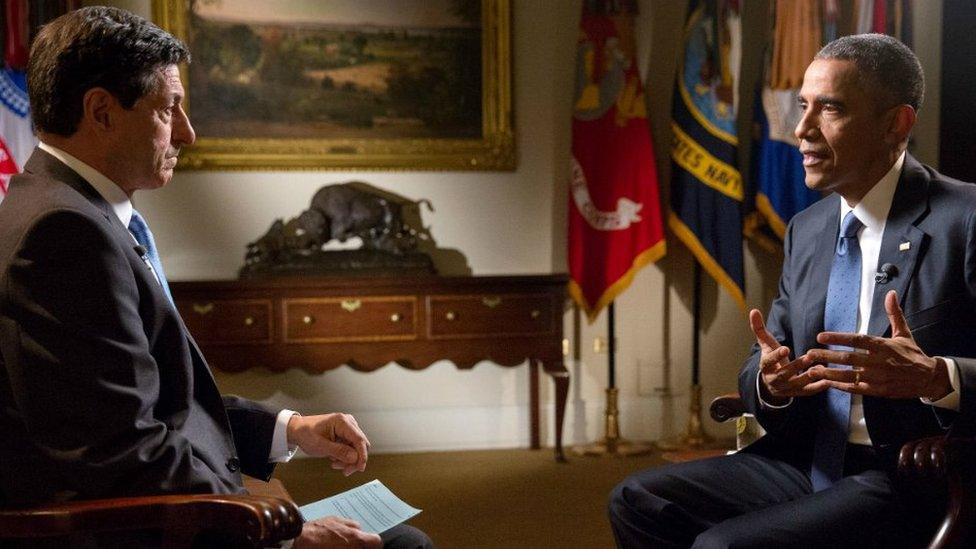
- Published23 July 2015
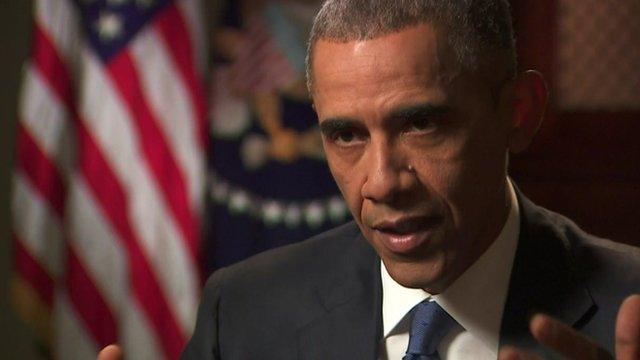
- Published24 July 2015
